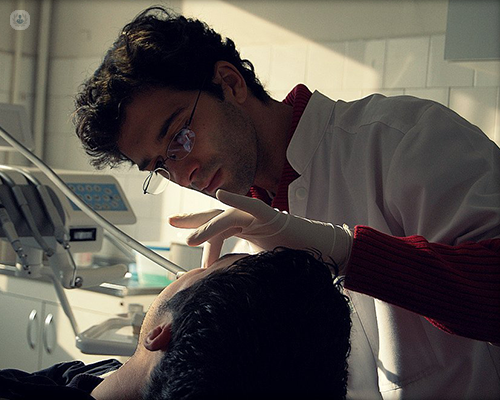The painful truth about wisdom teeth
Written in association with:Wisdom teeth are synonymous with pain and discomfort. Although in some cases they may not cause any problems, they usually have to be removed because of the agony and possible infections they bring about. Consultant oral and maxillofacial surgeon Mr Robert Goddard explains everything you need to know.

What are wisdom teeth?
Wisdom teeth are the last teeth to form in the mouth, usually when all other adult teeth are in place. They are also known as third molars and most commonly arise between the ages of 18 and 24. Most people develop four wisdom teeth, one in each corner of the mouth, but it is possible to have less than four wisdom teeth, or even more.
Occasionally wisdom teeth may form healthily and aligned with adjacent teeth, in which case they can be useful. For most people, however, this is not the case. As the mouth is already full, wisdom teeth are often misaligned and grow at odd angles as they jostle for space. It is also possible for wisdom teeth to become stuck as they grow, either before they penetrate the surface of the gum or as they push through. In these cases it is most likely that the individual will experience symptoms such as swelling and pain.
Sometimes wisdom teeth show no symptoms at all, but may cause other problems in the mouth.
Why have your wisdom teeth removed?
The indications for extractions of wisdom teeth are:
- Recurrent infections: as judged by facial swelling, intra-oral swelling, intra-oral discharge of pus, malaise and swollen glands in the neck. These findings are usually also accompanied by pain.
- Gross decay: of the wisdom tooth or the adjacent tooth.
- Bony disease: often showing up as cysts of the jaws.
- Facilitation of jaw surgery, such as to correct facial deformity.
- Prevention of anticipated problems when access to dental treatment is limited. e.g. travelling to remote parts of the world.
- Limitation of future repeated general anaesthesia: e.g. patient is having another operation at the same time that requires a general anaesthetic.
Pain in isolation is not an indication for removing wisdom teeth in the absence of historical or clinical findings, as there are many causes of facial pain that can present at the same time as erupting wisdom teeth. In most cases, extraction of wisdom teeth is undertaken while patients are awake, especially when patients have other existing medical conditions. Rarely is a general anaesthetic indicated for extraction of wisdom teeth.
If you would like to book a consultation with Mr Goddard, do not hesitate to do so by visiting his Top Doctors profile today.


